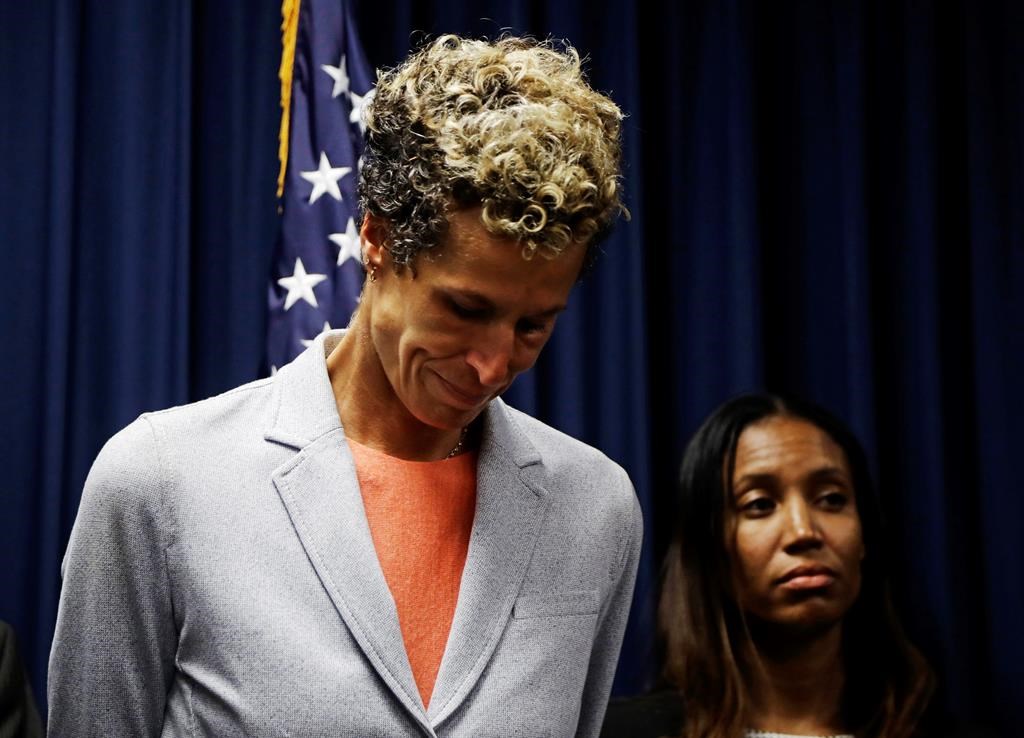In a stunning decision that could test the legal framework of #MeToo cases, convicted sex offender Bill Cosby has won the right to fight his 2018 sexual assault conviction in the Pennsylvania Supreme Court.

The 82-year-old Cosby was imprisoned in suburban Philadelphia for nearly two years after a jury convicted him of drugging and sexually assaulting Andrea Constand — a Toronto woman and former Temple University administrator — in 2004. He was found guilty on April 26, 2018 before later being sentenced three- to 10 years in prison, that September, as a result.
The Supreme Court has agreed to review two aspects of the case, including the judge’s decision to let prosecutors call five other accusers to testify about long-ago encounters with the once-powerful actor and comedian.
Cosby’s lawyers have long challenged that testimony as remote and unreliable. The court will also consider, as it weighs the scope of the testimony allowed, whether the jury should have heard evidence that Cosby had given quaaludes to women in the past.

Secondly, the court will examine Cosby’s argument that he had an agreement with a former prosecutor that he would never be charged in the case.
Cosby has said that he relied on that agreement before agreeing to testify in the trial accuser’s civil lawsuit.
Those issues have been at the heart of the case since Cosby was charged in December 2015, days before the 12-year state of limitations expired.

Get daily National news
Prosecutors in Montgomery County had reopened the case that year after the Associated Press fought to unseal portions of Cosby’s decade-old deposition testimony in Constand’s sex assault and defamation lawsuit against Cosby, which he had settled in 2006.
Dozens of other accusers had come forward since then to accuse Cosby, long beloved as “America’s Dad” because of his hit 1980s sitcom, of similar misconduct. Montgomery County Judge Stephen O’Neill allowed just one of them to testify at Cosby’s first trial in 2017, which ended with an acquittal.

But a year later, after the #MeToo movement exploded in the wake of reporting on Hollywood mogul Harvey Weinstein, the judge allowed five other accusers to testify at the retrial. The jury convicted Cosby on all three felony sex-assault counts.
Lawyer Brian W. Perry argued in the appeal that letting other accusers testify “flips constitutional jurisprudence on its head, and the ‘presumption of guilt,’ rather than the presumption of innocence, becomes the premise.”
Spokesman Andrew Wyatt said Cosby was “extremely thankful” the court would hear the case. He said the decision comes as demonstrators across the nation protest the death of Black people at the hands of police and expose the “corruption that lies within the criminal justice system.”
“As we have all stated, the false conviction of Bill Cosby is so much bigger than him — it’s about the destruction of all Black people and people of color in America,” Wyatt said in a statement.
Cosby’s lawyers also challenged his classification as a sexually violent predator subject to lifetime supervision. The actor, who insists he had a consensual encounter with accuser Constand, has said he would never express remorse to the parole board.

Constand, who has led the charge against Cosby over the last five years, submitted a victim-impact statement as evidence back in Sept. 2018 — one that Judge O’Neill quoted in the sentencing of the comic.
“To truly understand the impact that the sexual assault has had on my life, you have to understand the person that I was before it happened,” it begins.
In the statement, Constand recounts exhaustion, loss of appetite, traumatic nightmares, and an “overwhelming” sense of shame in the weeks following the sexual assault.
“Bill Cosby took my beautiful, healthy young spirit and crushed it,” Constand wrote. “He robbed me of my health and vitality, my open nature, and my trust in myself and others.”
For years, a nondisclosure agreement kept Constand and her family silent; the Cosby criminal trial provided her with an opportunity to finally reveal what took place more than 15 years ago.
The Associated Press typically does not name people who say they have been victims of sexual assault without their permission, which Constand has granted.
The #MeToo movement, which cast a harsh light on widespread patterns of sexual harassment or abuse in multiple spheres of American life and ended the careers of not only Cosby and Weinstein, 68, but dozens of powerful men in American media, politics and business as well.
— With files from Global News








Comments
Want to discuss? Please read our Commenting Policy first.